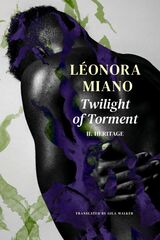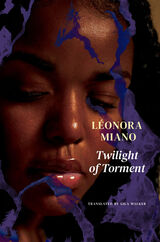
This captivating collection of translated short works by José López Portillo y Rojas, one of Mexico’s most significant literary figures, explores themes of social frustration, loss, and heartache in late-nineteenth-century Mexico.
Torment and Tequila in Belle Epoque Mexico is the first English-language collection of selected fiction by the influential Mexican author and political figure José López Portillo y Rojas (1850–1923). His distinguished career spanned the late nineteenth century to the tumultuous years of the Mexican Revolution.
López Portillo y Rojas’s prose is characterized by rich vocabulary and fluid progression, offering readers moments of deep reflection. The stories boast finely drawn characters and evocative settings, including that of the author’s native Jalisco. He adeptly addresses the grand issues of Porfirian times, seamlessly blending social and personal themes of suffering, ambition, desire, and betrayal, and anchors his stories in the realities of human experience.
Three masterfully translated short stories and one novella make up the collection, beginning with “The Lottery Ticket,” a critique of social hypocrisy that follows a dreamer whose fortunes slip through his fingers at the hands of his own family. “The Mirror” explores the eerie depths of grief and guilt, echoing the gothic brilliance of Edgar Allan Poe. “Nieves” is a gripping novella of love and power in which a young woman’s fate becomes entangled in a decaying estate and a brewing rebellion. “The Bracelet,” examines the tragic weight of the past, as a locked piece of jewelry seals the fate of an engaged couple. These translations offer an unforgettable glimpse into one of Mexico’s most brilliant minds and restore López Portillo y Rojas to his rightful place in Mexican literary history.

After beating his girlfriend and leaving her for dead on the street, Amok retraces his steps. Frightened by his act, which reproduces the violence of his father, he hopes to save the woman. But it is too late when he arrives at the scene; two women are already carrying the injured woman. Overwhelmed and not daring to reveal himself, he decides to find his father in order to learn how to rid himself of the dark force that he believes runs through the men of his lineage. He embarks on a journey that will be, more than anything, an inner one, forcing him to understand his story and choose a healthier way of being in the world. This second volume of Twilight of Torment is both intimate and political. Through the story of a man and his family, we discover an African bourgeoisie and its many social wanderings in a contemporary Africa whose future seems nebulous.

Four women speak. They speak to the same man, who is not there. He is the son of the first, the great-yet-impossible love of the second, the platonic companion of the third, the older brother of the last. Speaking to him in his absence, it is to themselves that these women turn, examining their own stories to make sense of their journey, from twilight to twilight, through a mysterious stormy night in the middle of the dry season.
Together, the voices in Twilight of Torment: Melancholy, the first volume of a two-volume novel, perform a powerful and sometimes discordant jazz-inspired chorus about issues such as femininity, sexuality, self-love, and the intrusion of history into the intimate lives of people of African descent. Blackness confronts African-ness, love is sometimes discovered in the arms of another woman, the African renaissance tries to establish itself on the rubble of self-esteem damaged by history. Each of these women, with her own language and rhythm, ultimately represents a specific aspect of the tormented history of Africans in today’s world, and at the end of the night, they will each arrive at a dawn of hope.
READERS
Browse our collection.
PUBLISHERS
See BiblioVault's publisher services.
STUDENT SERVICES
Files for college accessibility offices.
UChicago Accessibility Resources
home | accessibility | search | about | contact us
BiblioVault ® 2001 - 2025
The University of Chicago Press









